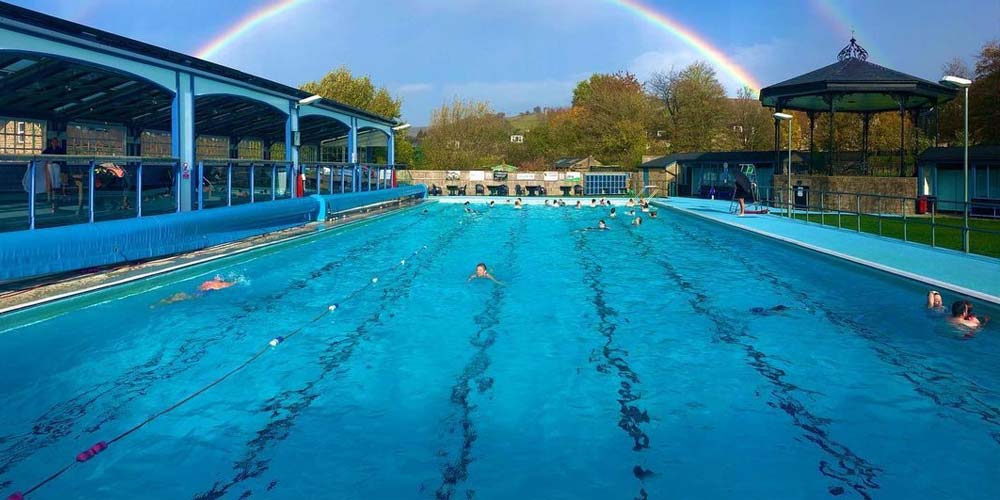খবর
-

ট্রাইক্লোরো ট্যাবলেট ব্যবহারের সুবিধা
ট্রাইক্লোরো ট্যাবলেট হল সবচেয়ে বেশি ব্যবহৃত পণ্যগুলির মধ্যে একটি, যা বেশিরভাগই বাড়ি, পাবলিক প্লেস, শিল্প বর্জ্য জল, সুইমিং পুল ইত্যাদিতে ব্যাকটেরিয়া এবং অণুজীব নির্মূল করতে ব্যবহৃত হয়। এর কারণ হল এটি ব্যবহার করা সহজ, উচ্চ জীবাণুমুক্তকরণ দক্ষতা রয়েছে এবং সাশ্রয়ী মূল্যের। ট্রাইক্লোরো ট্যাবলেট (এছাড়াও...আরও পড়ুন -

ক্লোরিন শকের পর পুলের রঙ কেন বদলে যায়?
অনেক পুলের মালিক হয়তো লক্ষ্য করেছেন যে কখনও কখনও পুলের ক্লোরিন যোগ করার পরে পুলের জলের রঙ পরিবর্তন হয়। পুলের জল এবং আনুষাঙ্গিকগুলির রঙ পরিবর্তনের অনেক কারণ রয়েছে। পুলে শৈবালের বৃদ্ধি ছাড়াও, যা জলের রঙ পরিবর্তন করে, আরেকটি কম পরিচিত কারণ হল ভারী...আরও পড়ুন -

অ্যালুমিনিয়াম সালফেট দিয়ে আপনার পুল ফ্লোকুলেশন করুন
মেঘলা পুলের পানি সংক্রামক রোগের ঝুঁকি বাড়ায় এবং জীবাণুনাশক পদার্থের কার্যকারিতা হ্রাস করে, তাই পুলের পানি সময়মতো ফ্লকুল্যান্ট দিয়ে শোধন করা উচিত। অ্যালুমিনিয়াম সালফেট (যাকে অ্যালামও বলা হয়) পরিষ্কার এবং পরিষ্কার সুইমিং পুল তৈরির জন্য একটি চমৎকার পুল ফ্লকুল্যান্ট...আরও পড়ুন -

PAM নির্বাচন করার সময় আপনার যে তিনটি সূচকের দিকে মনোযোগ দেওয়া উচিত
পলিয়াক্রিলামাইড (PAM) হল একটি জৈব পলিমার ফ্লোকুল্যান্ট যা জল পরিশোধনের ক্ষেত্রে ব্যাপকভাবে ব্যবহৃত হয়। PAM এর প্রযুক্তিগত সূচকগুলির মধ্যে রয়েছে আয়নিসিটি, হাইড্রোলাইসিস ডিগ্রি, আণবিক ওজন ইত্যাদি। এই সূচকগুলি জল পরিশোধনের ফ্লোকুলেশন প্রভাবের উপর উল্লেখযোগ্য প্রভাব ফেলে। বোঝা...আরও পড়ুন -

পুল রক্ষণাবেক্ষণের জন্য একটি নতুন বিকল্প: ব্লু ক্লিয়ার ক্ল্যারিফায়ার
প্রচণ্ড গ্রীষ্মে, সুইমিং পুল অবসর এবং বিনোদনের জন্য একটি জনপ্রিয় স্থান হয়ে উঠেছে। তবে, সুইমিং পুলের ঘন ঘন ব্যবহারের ফলে, পুলের পানির গুণমান বজায় রাখা একটি সমস্যা হয়ে দাঁড়িয়েছে যার মুখোমুখি প্রতিটি পুল ব্যবস্থাপককেই হতে হয়। বিশেষ করে পাবলিক সুইমিং পুলগুলিতে, এটি বজায় রাখা অত্যন্ত গুরুত্বপূর্ণ...আরও পড়ুন -

মার্কিন যুক্তরাষ্ট্রে সুইমিং পুলের পানির পরিস্থিতি এবং pH নিয়ন্ত্রণ
মার্কিন যুক্তরাষ্ট্রে, জলের গুণমান অঞ্চলভেদে ভিন্ন। বিভিন্ন অঞ্চলে জলের অনন্য বৈশিষ্ট্যের কারণে, আমরা সুইমিং পুলের জলের ব্যবস্থাপনা এবং রক্ষণাবেক্ষণের ক্ষেত্রে অনন্য চ্যালেঞ্জের মুখোমুখি হই। জলের pH মানব স্বাস্থ্যের ক্ষেত্রে গুরুত্বপূর্ণ ভূমিকা পালন করে। ...আরও পড়ুন -

ফ্লোকুল্যান্ট হিসেবে কোন পলিমার ব্যবহার করা হয়?
বর্জ্য জল পরিশোধন প্রক্রিয়ার একটি গুরুত্বপূর্ণ পর্যায় হল ঝুলন্ত কঠিন পদার্থের জমাট বাঁধা এবং জমাট বাঁধা, একটি প্রক্রিয়া যা মূলত ফ্লোকুল্যান্ট নামক রাসায়নিকের উপর নির্ভর করে। এতে, পলিমারগুলি গুরুত্বপূর্ণ ভূমিকা পালন করে, তাই PAM, পলিঅ্যামাইন। এই নিবন্ধটি সাধারণ পলিমার ফ্লোকুল্যান্টগুলির প্রয়োগ,... সম্পর্কে বিস্তারিত আলোচনা করবে।আরও পড়ুন -

অ্যালগেসাইড কি ক্লোরিনের চেয়ে ভালো?
সুইমিং পুলে ক্লোরিন যোগ করলে তা জীবাণুমুক্ত হয় এবং শৈবালের বৃদ্ধি রোধ করতে সাহায্য করে। শৈবাল, নাম থেকেই বোঝা যায়, সুইমিং পুলে জন্মানো শৈবালকে মেরে ফেলে? তাহলে কি সুইমিং পুলে ক্লোরিন ব্যবহারের চেয়ে শৈবাল ব্যবহার করা ভালো? এই প্রশ্নটি অনেক বিতর্কের জন্ম দিয়েছে পুল ক্লোরিন জীবাণুনাশক আমি...আরও পড়ুন -

পুল রক্ষণাবেক্ষণে ক্লোরিন ট্যাবলেট এবং গ্রানুলের মধ্যে কীভাবে নির্বাচন করবেন?
পুল রক্ষণাবেক্ষণের ধাপগুলিতে, পরিষ্কার জলের গুণমান বজায় রাখার জন্য জীবাণুনাশক প্রয়োজন। ক্লোরিন জীবাণুনাশক সাধারণত পুল মালিকদের প্রথম পছন্দ। সাধারণ ক্লোরিন জীবাণুনাশকগুলির মধ্যে রয়েছে TCCA, SDIC, ক্যালসিয়াম হাইপোক্লোরাইট ইত্যাদি। এই জীবাণুনাশকগুলির বিভিন্ন রূপ রয়েছে, গ্রানুল...আরও পড়ুন -

পুল ক্লোরিন বনাম শক: পার্থক্য কী?
নিয়মিত ক্লোরিনের ডোজ এবং পুল শক ট্রিটমেন্ট আপনার সুইমিং পুলের স্যানিটাইজেশনে গুরুত্বপূর্ণ ভূমিকা পালন করে। কিন্তু যেহেতু উভয়ই একই রকম কাজ করে, তাই আপনি যদি জানেন না যে এগুলি ঠিক কীভাবে আলাদা এবং কখন আপনার একটির উপর অন্যটি ব্যবহার করতে হবে। এখানে, আমরা দুটির জটিলতা সমাধান করব এবং কিছু পরামর্শ দেব...আরও পড়ুন -

কেন WSCP জল ব্যবস্থাপনায় ভালো কাজ করে?
তরল পলিমারিক কোয়াটারনারি অ্যামোনিয়াম বায়োসাইড WSCP এর সাহায্যে বাণিজ্যিক এবং শিল্প কুলিং টাওয়ারের সঞ্চালিত শীতল জল ব্যবস্থায় জীবাণুর বৃদ্ধি রোধ করা যেতে পারে। জল শোধনে WSCP রাসায়নিক সম্পর্কে আপনার কী জানা উচিত? নিবন্ধটি পড়ুন! WSCP কী WSCP একটি শক্তিশালী... হিসাবে কাজ করে।আরও পড়ুন -

বর্জ্য জল পরিশোধনে ফ্লোকুল্যান্টের কর্মক্ষমতা প্রভাবিত করার কারণগুলি
বর্জ্য জল পরিশোধনে, pH একটি গুরুত্বপূর্ণ উপাদান যা সরাসরি ফ্লোকুল্যান্টের কার্যকারিতাকে প্রভাবিত করে। এই নিবন্ধটি pH, ক্ষারত্ব, তাপমাত্রা, অপরিষ্কার কণার আকার এবং ফ্লোকুল্যান্টের ধরণের প্রভাব ফ্লোকুলেশন কার্যকারিতার উপর গভীরভাবে আলোচনা করবে। pH এর প্রভাব বর্জ্য জলের pH হল ক্লো...আরও পড়ুন

